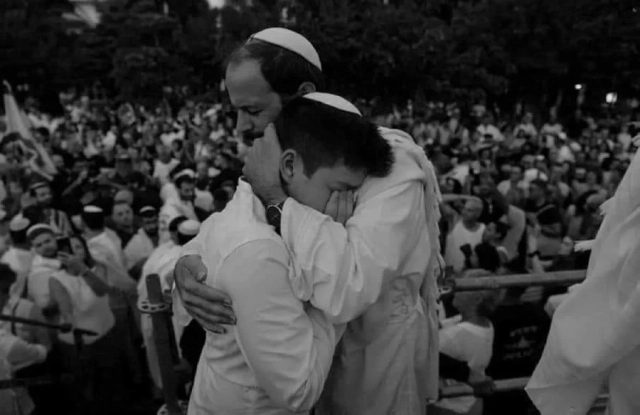On the eve of Yom Kippur, tensions flared in the heart of Tel Aviv as Dizengoff Square became a battleground between secular Tel Aviv residents and the organizers from the “Rosh Yehudi” organization. The dispute centered around the attempt by prayer organizers to establish a traditional space for Jewish prayer, one that adheres to gender segregation—a move at odds with the courts' dismissal of their appeal against the Tel Aviv-Jaffa municipality's decision. Prime Minister Benjamin Netanyahu weighed in on the situation, decrying "extremists on the left" without restraint.
The turmoil didn't confine itself to Dizengoff Square; clashes also unfolded in Bima Square and Madinah Square, where similar attempts to enforce traditional gender separation during prayer were made. The following day, near a local shopping mall, another attempt at separate prayer led to clashes between worshipers and demonstrators who sought to halt the proceedings. Throughout Tel Aviv, demonstrators employed various tactics to disrupt public prayers, including singing and swapping designated areas for men and women.
Even before the holiday began, residents passing through the area noticed that Dizengoff Square had been cordoned off, defying the court's order to keep public spaces unobstructed. In defiance of this, the organizers continued their efforts.
תיעוד נוסף מההפגנה אתמול בתל אביב
— שבאה לנקות #בחרנו_ביבי_לא_בחרנו_בגץ (@immediateres) September 20, 2023
כשמפגינים רודפים אחרי מנכ"ל ראש יהודי, ישראל זעירא שכל פשעו שארגן תפילת נעילה בכיכר דיזינגוף עם מחיצה.
(עמית סגל)https://t.co/4ni0gHP4bg pic.twitter.com/YqmXhJ9j7y
In an unconventional move to enforce separation, the “Rosh Yehudi” organization placed Israeli flags in the center of the square, effectively creating an improvised partition. As the evening approached, the square filled with people, and some residents raised their voices in protest against the prayer gathering and the perceived attempt to circumvent the court's ruling. The police intervened, attempting to maintain order between the prayer organizers and the residents chanting slogans like "There is no place for gender segregation in Tel Aviv."
Demonstrators also directed their anger at the worshipers, shouting slogans such as "There will be no religious coercion here" and "We will not accept separation." After an hour of clashes that cast a shadow over the city on the holiest day in the Jewish calendar, members of “Rosh Yehudi” and other individuals beginning their Yom Kippur fast decided to leave the square and relocate to a nearby synagogue.
Prime Minister Benjamin Netanyahu expressed his disapproval of the residents who disrupted the prayer, stating, "The people of Israel sought unity on Yom Kippur by asking for forgiveness and unity among us. To our astonishment, on the holiest day for the Jewish people, left-wing demonstrators clashed with Jews during their prayers in the Jewish state. It seems that there are no boundaries, no norms, and no restraint when it comes to hatred among these left-wing extremists. I, like the majority of Israeli citizens, reject this. Such violent behavior has no place among us."
מפגני שמאל הפסיקו תפילה בהפרדה מגדרית בערב יום כיפור בכיכר דיזינגוף בתל אביב pic.twitter.com/Yj7DR4zsMl
— 🇮🇱🇮🇱333 JOEL 333 (@joel88783887) September 25, 2023
Responding to the incidents, Mayor of Tel Aviv-Jaffa Ron Huldai commented, "Unfortunately, last night, religious and messianic extremists chose to defy the court's decision and establish gender segregation during the Yom Kippur eve prayer. In Tel Aviv-Jaffa, we cherish a true coexistence where Arabs and Jews, secular and religious, LGBT and straight, live side by side. Incidents like the one yesterday threaten to disrupt this harmonious coexistence."
In a city that prides itself on diversity and tolerance, this clash serves as a stark reminder of the deep-seated divisions that continue to challenge the coexistence of differing beliefs and traditions within Israel.


